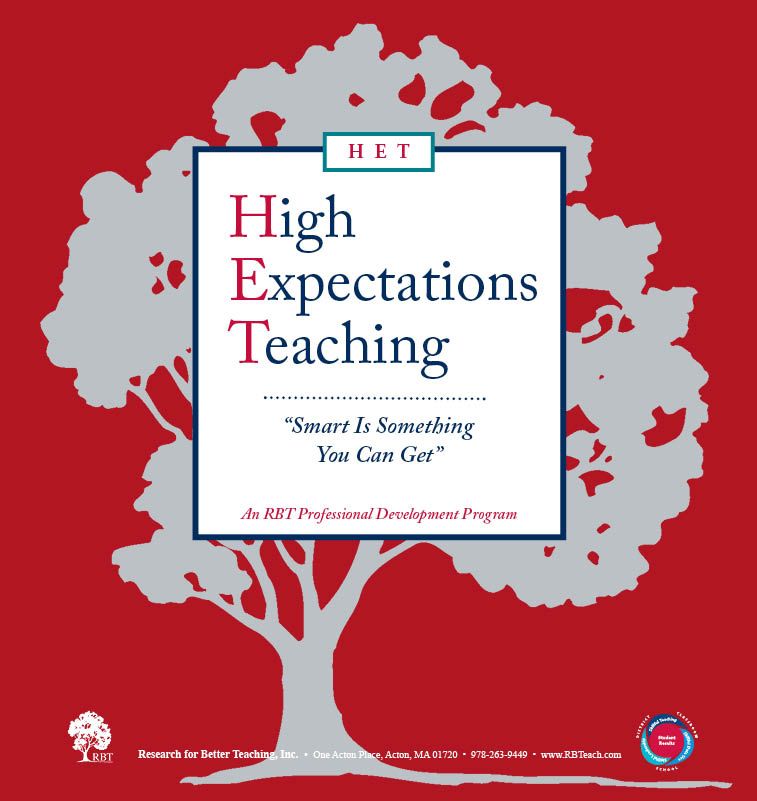About This Course
This is a 18-hour/3-day course for:
- Teachers
- Teacher Leaders
- Instructional Coaches
- Administrators
For students to believe that “Smart is Something You Can Get” (Jeff Howard, 1986), they must hear that we believe in their capacity to learn. They also need to be in an environment where teachers’ everyday behaviors send the following messages:
- What we’re doing is important.
- You can do it.
- And I’m not going to give up on you.
This program teaches what it looks like and sounds like when a teacher acts authentically from a growth mindset. Participants will learn how to choose language, develop classroom structures, and use effective instructional strategies to motivate all students, but particularly to get low-performing, low-confidence students to change their stereotypes about themselves.
Goals
Participants will learn how to choose language, develop classroom structures, and use effective instructional strategies to motivate all students, but particularly to get low-performing, low-confidence students to change their stereotype about themselves. As a result of this program, participants’ students will:
- Believe effort is the main determinant of success
- Learn how to exert effective effort
- Decide to invest in school
- Feel empowered in their learning
- Achieve more
This course has introduced ways of thinking about my students' experience in the classroom that I've never been exposed to before. As a teacher, I'm usually so focused on the quality of materials, structure, and access to skill that I don't naturally think of how my implicit messages, classroom culture, questioning patterns, and attention to affect/relationship building/community often supersedes my academic passions. Thank you for helping me value my students' needs more than my own. |
High Ex Participant |
Course Format
Participants will:
- Conduct classroom based experiments to get students to believe they can grow their ability and teach them strategies for doing so.
- Learn how to communicate three critical messages to all students: “What we’re doing is important; you can do it; I won’t give up on you.”
Videos
An Introduction to High Expectations Teaching
The Impact of High-Expectations Teaching - Elementary
Teachers, students, and parents testify powerfully about the effect of what happens when teachers bring "effort-based ability" into practice in their teaching.
"The Barnstable Story": Sending High-Expectation Messages: Middle School
Teachers and administrators talk about the impact of sending high expectation messages as a total school effort. Great student gains result.
Resources
Course Focus Questions
During the course, participants will be asked to reflect on the following questions:
- How do our beliefs about ability influence our behavior, the messages we send to students about their intellectual capacity, and our effectiveness in communicating high expectations to all students?
- How do students’ beliefs influence their motivation to work hard and their confidence that they can achieve at high levels?
- What are the meaning and significance of standards and expectations? How does each impact the learning environment we create?
- How can we explicitly teach students to exert their effort effectively?
- How do students come to know what is expected of them or what is important?
- What opportunities can we seize daily in our language and our behaviors to influence student confidence and conviction that every one of them has plenty of ability to learn rigorous material and to be successful in meeting high expectations?
- What classroom routines and practices do we need to put in place to provide students with information about how they are performing and to support them in taking agency and ownership of their learning?
- What school-wide policies, practices and programs need to be aligned with these efforts in order to maximize the results we can achieve with our students?
This course gave me tools to work at all levels of my school to implement a more consistent model of seeking, expecting, and creating high expectations for my colleagues and for their students. |
High-Ex Participant |
Teaching Impact
For over 40 years, RBT has delivered professional development to teachers across the country as well as internationally. We have collected and reviewed evidence to show the positive impact of this work on teacher practice and student results from our teaching courses.

Course Information
Groups of 25 or more: Submit a Service Request to discuss how this course could benefit educators in your school or district.
Note: This program is not offered as an open enrollment opportunity for groups of less than 25.
Credits:
Participants completing all program requirements can optionally receive one graduate credit through Fitchburg State University for an additional fee paid directly to FSU. Learn More
